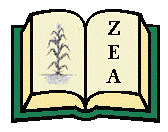
Zea E-Books Collection
Files
Download Full Text (7.9 MB)
Description
The works of Lafcadio Hearn (Koizumi Yakumo) played a critical role in introducing his adopted Japan to a worldwide audience. In Kokoro: Hints and Echoes of Japanese Inner Life, he writes, “The papers composing this volume treat of the inner rather than of the outer life of Japan, — for which reason they have been grouped under the title Kokoro (heart). This word signifies also mind, in the emotional sense; spirit; courage; resolve; sentiment; affection; and inner meaning, — just as we say in English, ‘the heart of things.’” After centuries of isolation Meiji-era Japan was forced to adjust its customs and beliefs to Western influences, and Hearn reflects on the value of these traditions of the “heart” as seen in Japanese popular justice, arts, economy, patriotism, and religion. Chapters include: At a Railway Station • The Genius of Japanese Civilization • A Street Singer • From a Traveling Diary • The Nun of the Temple of Amida • After the War • Haru • A Glimpse of Tendencies • By Force of Karma • A Conservative • In the Twilight of the Gods • The Idea of Preëxistence • In Cholera-Time • Some Thoughts About Ancestor-Worship • Kimiko • Three Popular Ballads: The Ballad of Shūntoku-maru • The Ballad of Oguri-Hangwan • The Ballad of O-Shichi, the Daughter of the Yaoya.
After years of living in Greece, Ireland, France, England, the United States, and the French West Indies, 41-year-old Lafcadio Hearn (1850-1904) found a home in Meiji Japan, where he married, became a citizen, and took the name Koizumi Yakumo. As a teacher, writer, and correspondent, he was among the first to introduce the culture and literature of Japan to the West.
doi: 10.32873/unl.dc.zea.1313
ISBN
978-1-60962-226-8 (ebook)
Publication Date
1-1-2022
Publisher
Zea Books
City
Lincoln
Keywords
Japan, Meiji, Westernization
Disciplines
Asian History | Cultural History | East Asian Languages and Societies | Japanese Studies | Nonfiction
Recommended Citation
Hearn, Lafcadio and Yakumo, Koizumi, "Kokoro: Hints and Echoes of Japanese Inner Life" (2022). Zea E-Books Collection. 115.
https://digitalcommons.unl.edu/zeabook/115

Included in
Asian History Commons, Cultural History Commons, Japanese Studies Commons, Nonfiction Commons


Comments
Originally published in 1896